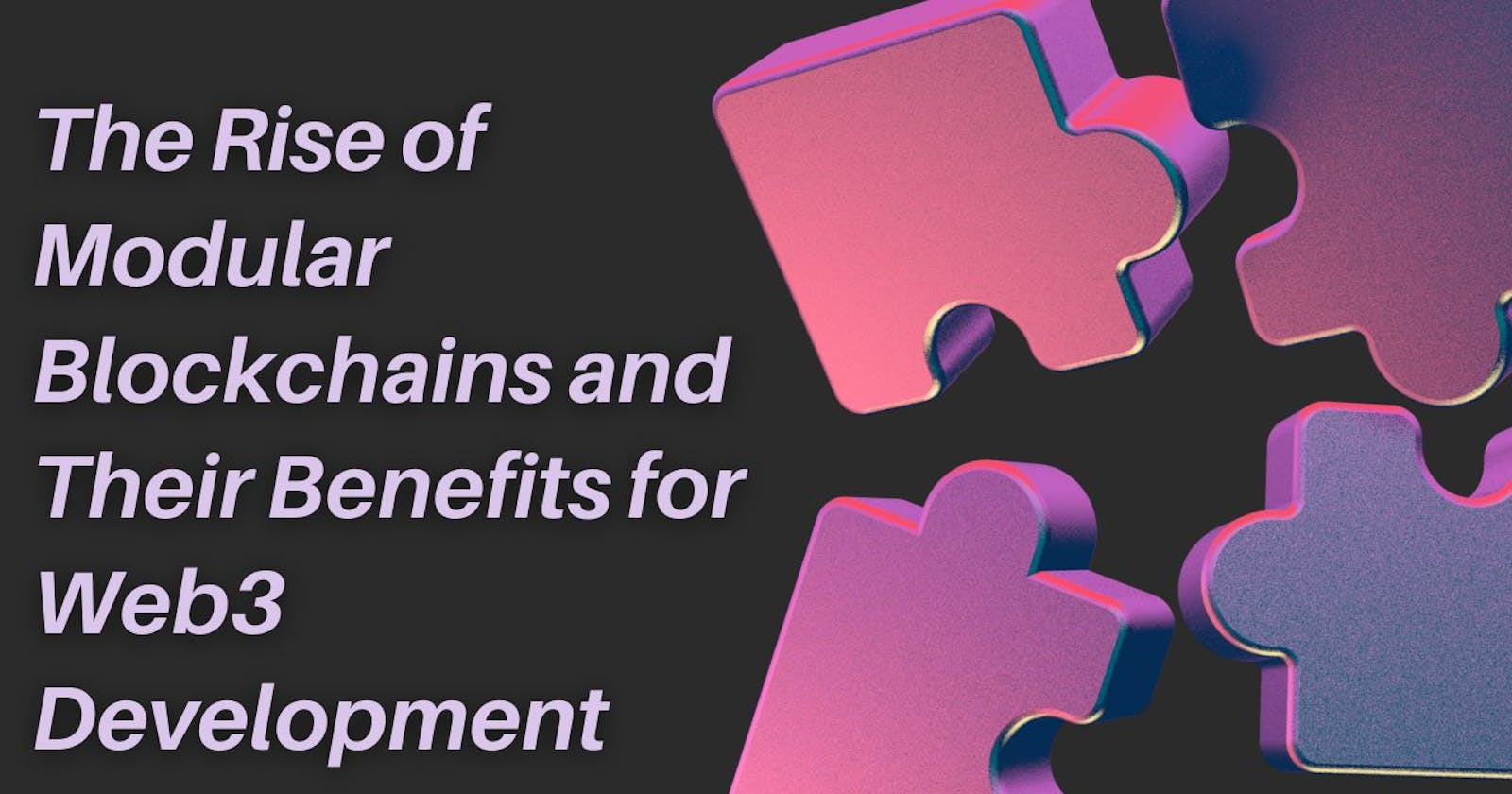Over the last few years modular blockchains have been booming in the space of tech development. Monolithic Web3 development can be now rethought as modular solutions are adopted. With businesses and companies looking forward to implementing this technology for different purposes, the demand of the professionals in this field has also grown itself dramatically. The outcome has been a sharp rise in demand by organizations to hire blockchain developers who are able to handle the intricacies with ease when creating decentralized systems. This article discusses how modular chains are gaining demand in the arena of Web3 programming and spotlight several among the many benefits, which makes the hiring of dedicated blockchain developers notable.
Understanding Modular Blockchains
Modular blockchain has higher development flexibility in the production of dApps on the basis of the distributed-decentralized system. Unlike the traditional monolithic centralized blockchains that are oftentimes only large in structure, modular blockchains are joined together by autonomous, independent modules. With these modules, referred to as "block," you can customize and compose them, while they still allow powerful use-case-specific solutions, far more than what you could imagine in the context of blockchain technology.
Blockchains in a modules are an innovations which offer these advantages
1. Flexibility and Customization
The chief benefit of plug and play blockchain technologies is the ability to broaden and adapt. With divisibility of the block chain component to modular is an agility of developers to customize and change the technology to suit their specific conditions. Whether its doing interoperability between different consensus mechanisms, including specific smart contract functionality or improving its performance for efficiency then the modularity of blockchains helps developers to create scalable and robust solutions which are tailored for the development that a specific development may require.
2. Scalability and Interoperability
Scalability being a long-standing problem for traditional blockchains is responsible to a significant extent for their failure in balancing high transactional values with an efficient rate of publication. Contrastingly, modular blockchains solve the problem of collaborating through the capability to communicate between different parts with each other effortlessly. Their conduction of the process also allows the said developers to scale their applications from both the vertical and the horizontal sides such as integrating new blocks as necessary for achieving high performance and throughput even in highly demanding conditions.
3. There are also issues involving the security and robustness of automation
Being the cornerstone in the blockchain world, security takes transcendence with trust and integrity. With modular blockchains safety increases through traditional “compartmentalization” reducing surface of attack and preferring a more distributed system. Furthermore, the modularity of blockchains allows for regular updates and advancements so that the technology be able to keep on being dependable and relevant as the different threats evolve.
The Places of Blockchain Developers in the process of Building Web3 Development
Moving on, just as the number of modular blockchains is soaring, there is an ever-increasing number of blockchain developers in the market who are trained very well and most of their job vacancies are filled. These developers are key builders of modular decentralized solutions that capitalize on the unique advantages of the modular blockchain model in an effort to advance the next IOT revolution. These bewhile be: building smart contracts, enhancing consensus algorithms, and integrating blockchain with other technologies -- all the functions in Web3 -- are the major challenges facing expert developers and they determine what would be the future of the industry.
Hiring Dedicated Blockchain Developers
One of the focal aspects for lots of businesses implementing Web3 projects is the need of employing qualified blockchain developers. Their involvement disciplines organizations with professionalized specific domains of knowledge and practical skill as well as advising companies on the deployment of the blockchain solution. To hire an efficient blockchain app developers in the USA, business organisations would need to prioritise candidates having demonstrable success in the native modules blockchain development. This will allow them to verify whether the candidates have the required skill awareness.
Conclusion
Finally, a modular blockchain development which provides future replacement and upgrade possibilities at the biggest scales with enhanced security can be seen as a breakthrough in the blockchain technology development. Embracing modular architecture and hiring dedicated blockchain developers can offer potential unlimited opportunities and supply fuel in an insurgent decentralized design. Since the increasing demand for high-skilled professionals becomes a reality, the companies are bound to concentrate in hiring developers that have advanced skills in modular blockchains in order to be in a position to come up with breakthrough solutions. For those who are willing to start Web3 development journeys, let me tell you one thing – modularity is the future, and it comes with infinite opportunities.

